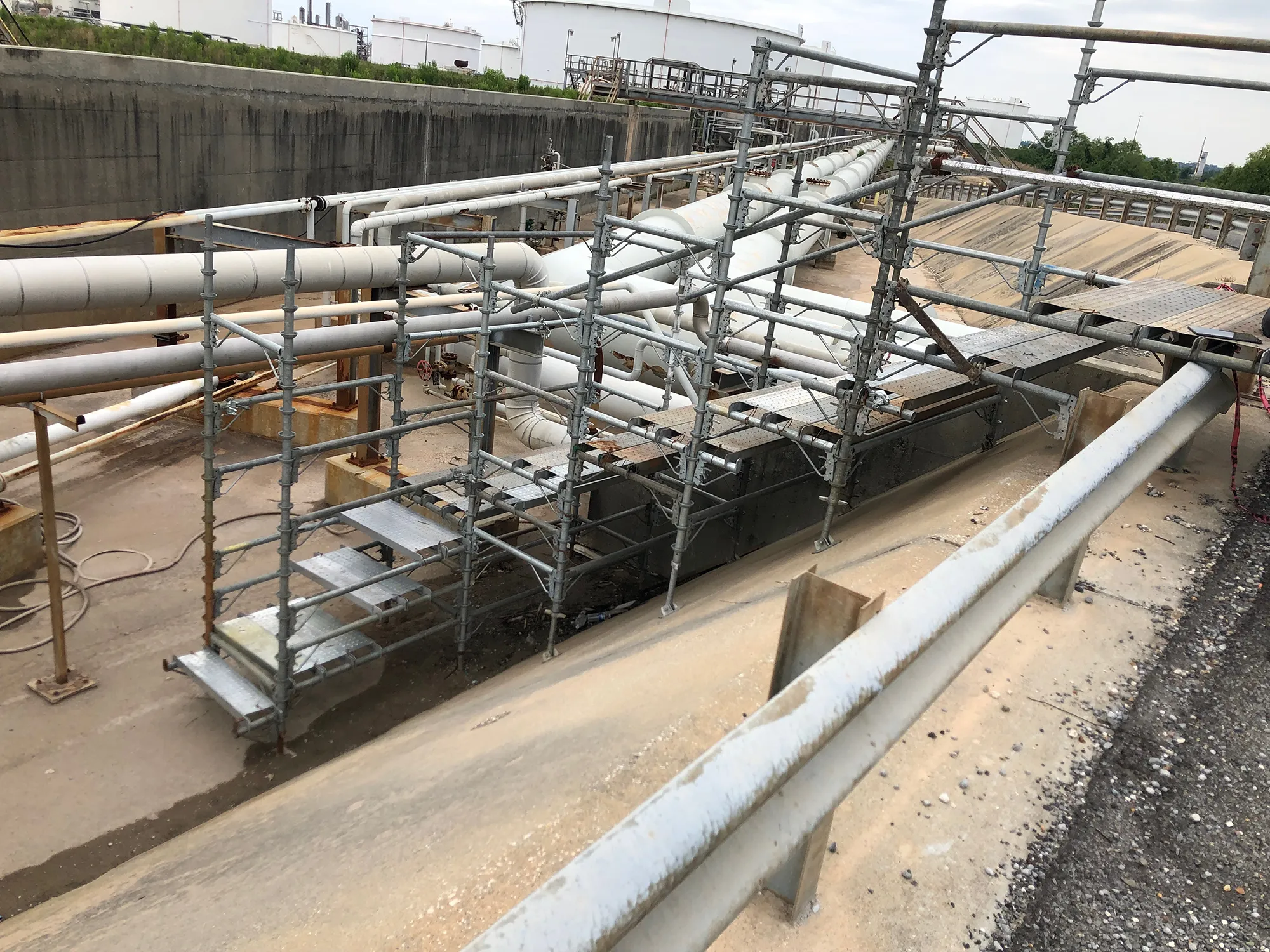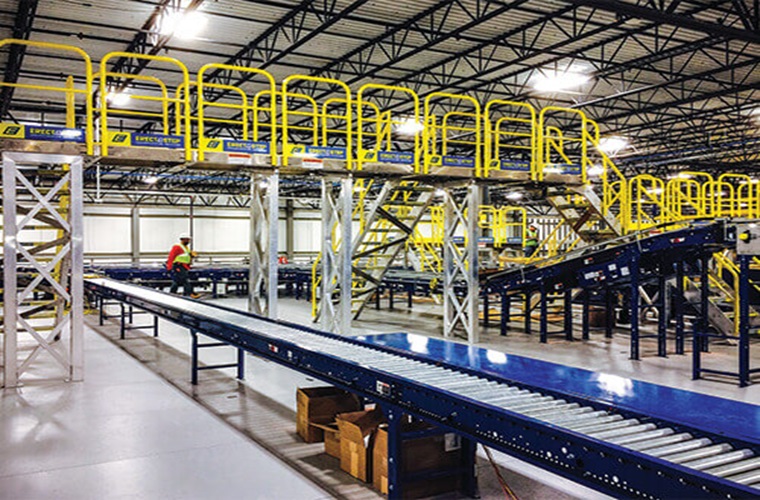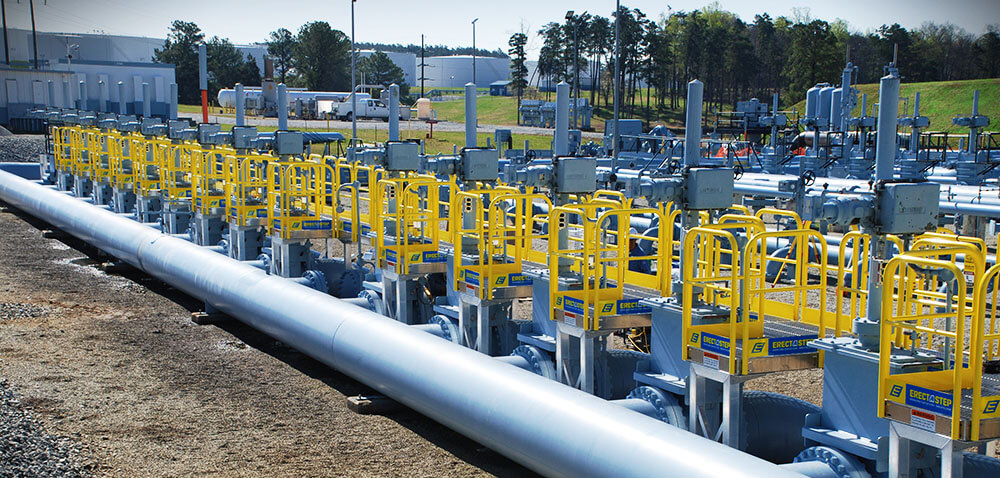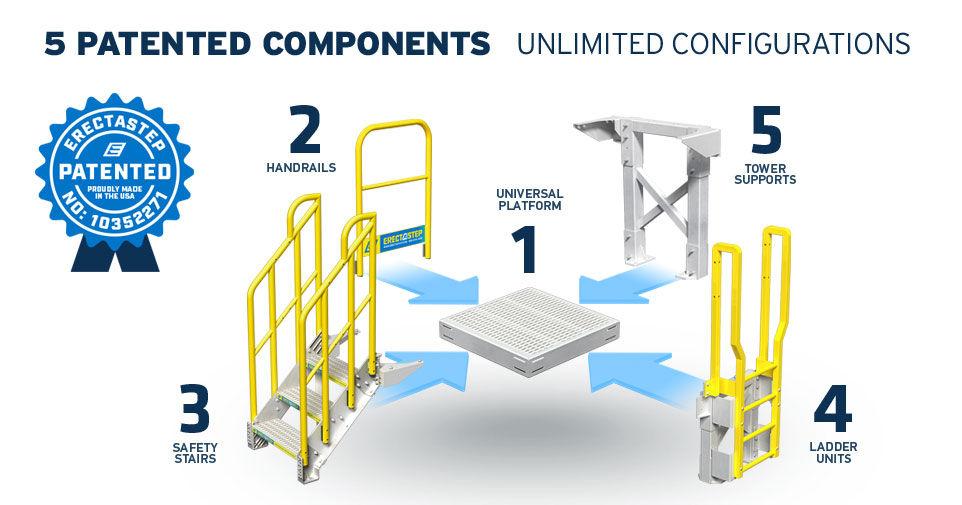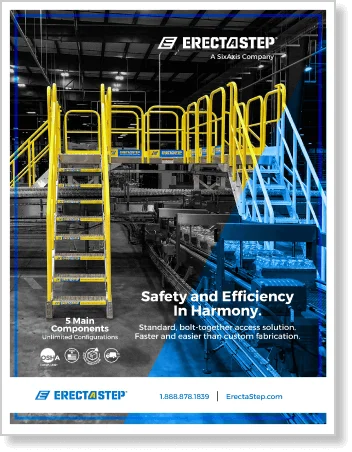Prefabricated stairs are stair systems that are manufactured offsite in a factory setting and delivered ready for installation. This method ensures consistency in quality and significantly reduces on-site construction time.

Key Benefits:
- Consistency in Quality: Manufactured under controlled conditions, ensuring uniformity and high standards.
- Reduced Construction Time: Minimizes on-site work, leading to faster project completion.
- Cost: Streamlines construction processes, potentially reducing overall costs.
Applications:
- Used in homes to streamline the construction process and increase design uniformity.
- Applied in office buildings and retail spaces to expedite the building process and maintain high-quality standards.
- Utilized in factories and warehouses to provide durable, ready-to-install stair systems that meet industry demands.
Prefabricated stairs arrive pre-assembled in sections or modules and installed directly on-site, cutting down on construction time.
OSHA Compliance for Prefabricated Stairs
The Occupational Safety and Health Administration (OSHA) provides guidelines to ensure prefabricated stairs meet safety standards. Key points include:
- Design and Construction: Ensure that stairs are designed and constructed to support the intended load and use.
- Tread and Riser Dimensions: Adhere to OSHA specifications for consistent tread and riser dimensions to prevent tripping hazards.
- Surface and Maintenance: Ensure surfaces are slip-resistant and regularly maintained to uphold safety standards.
